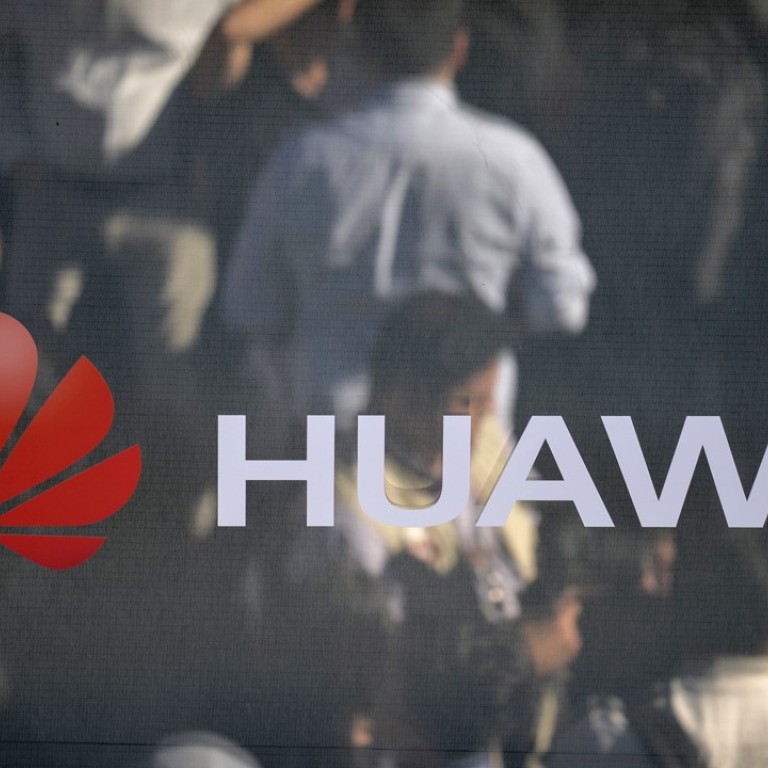
Top Huawei executive calls for ‘open-minded’ US political leaders to ensure academic freedom
The focus on Huawei’s research ties in the US comes at a time of heightened tensions between China and the US over the control and development of new technologies and the implications for national security.
A top Huawei executive has called on “open-minded” US politicians to safeguard academic freedom at the country’s universities, in a rebuttal to calls by several members of Congress to investigate the Chinese company’s research partnerships.
“I believe this criticism displays an ignorance of how contemporary science and innovation work and described it as “ill-informed” during a recent media interview,” Eric Xu, who holds the rotating chairmanship of Shenzhen-based Huawei, wrote in an opinion piece published in the Financial Times.
Academic freedom, he argued, is the cornerstone of higher learning. “This freedom from political and other interference allows the US consistently to attract the world’s brightest minds to study and conduct research within its borders,” Xu said in the essay. “It also supports the US’s continued status as a global technology leader.”
The publication of the essay comes after a bipartisan group of 26 lawmakers, including Florida Senator Marco Rubio, wrote to US Education Secretary Betsy DeVos in late June to highlight the national security implications of Huawei’s research partnerships and other relationships with several dozen American colleges and universities in areas of technology that the Chinese government is trying to dominate.
Xu called Rubio and other US lawmakers “ignorant” in an interview with Light Reading, a US-based digital media and telecoms industry analysis platform, on June 27, saying that “it seems to me their bodies are in the information age but their minds are still in the agrarian age.”
Their behaviour shows not just their ignorance of science and innovation but also their own lack of confidence, Xu said in the interview, calling Rubio and fellow Republican representative Jim Banks “closed-minded and ill-informed”.
Rubio, in a subsequent response on Twitter, accused Huawei of making its fortune through theft, unfair practices and spying for China.
The focus on Huawei’s research ties in the US comes at a time of heightened tensions between China and the US over the control and development of new technologies and the implications for national security. President Donald Trump said on June 27 that he will use a strengthened national security review process to thwart Chinese acquisitions of sensitive American technologies.
The US lawmakers want DeVos to investigate the Huawei Innovation Research Program and other programmes through which the Chinese companies partners with institutes of higher education across the US. The lawmakers told DeVos that she should convene a task force to investigate these partnerships and be briefed on Huawei by top intelligence and law enforcement officials.
The US intelligence community has warned for years of Huawei’s links to the Chinese government and the People’s Liberation Army. Huawei has consistently denied any such connections, saying that it is a private company that is part-owned by its employees.
In the Financial Times op-ed, Xu denied that Huawei gains exclusive ownership of, or access to, the findings of the research that the company supports, adding that it also does not dictate the content of what is published. The practice is just like other corporate supporters of university research – including US businesses that support Chinese universities, he said.
“Before any basic research can deliver tangible benefits to society, universities and businesses must set off together on a long and sometimes arduous journey,” Xu said. “This requires unstinting work by countless scientists and engineers. Such people deserve respect, not groundless accusations from sceptical politicians, for their efforts.”
Corporate sponsorship of scientific research is important given the steadily decreasing US federal funding for higher education research to less than 50 per cent of total American university research funding these days, Xu said. Huawei allocates a “relatively modest” sum of about US$10 million to research at US universities, which helps towards funding and pays for facilities and laboratory equipment, he said.
“Our collaboration with universities gives college and postgraduate students the chance to receive training and hands-on experience,” Xu said. “We provide this support with no expectation of direct commercial return,”
The Huawei Innovation Research Program provides funding opportunities to leading universities and research institutes conducting innovative research in communication technology, computer science, engineering, and related fields, according to the official website.
It has over 1,000 collaboration partners all over the world, with institutes such as the University of Cambridge, National University of Singapore and China’s prestigious Tsinghua University and Peking University.
“Open-minded political leaders should work to ensure that US universities continue to enjoy the academic freedom that drives American progress in science and technology,” Xu said. “Ideally they will bring to that task the same depth of understanding, curiosity, and spirit of fact-finding inquiry displayed by the world’s leading scientists.”

